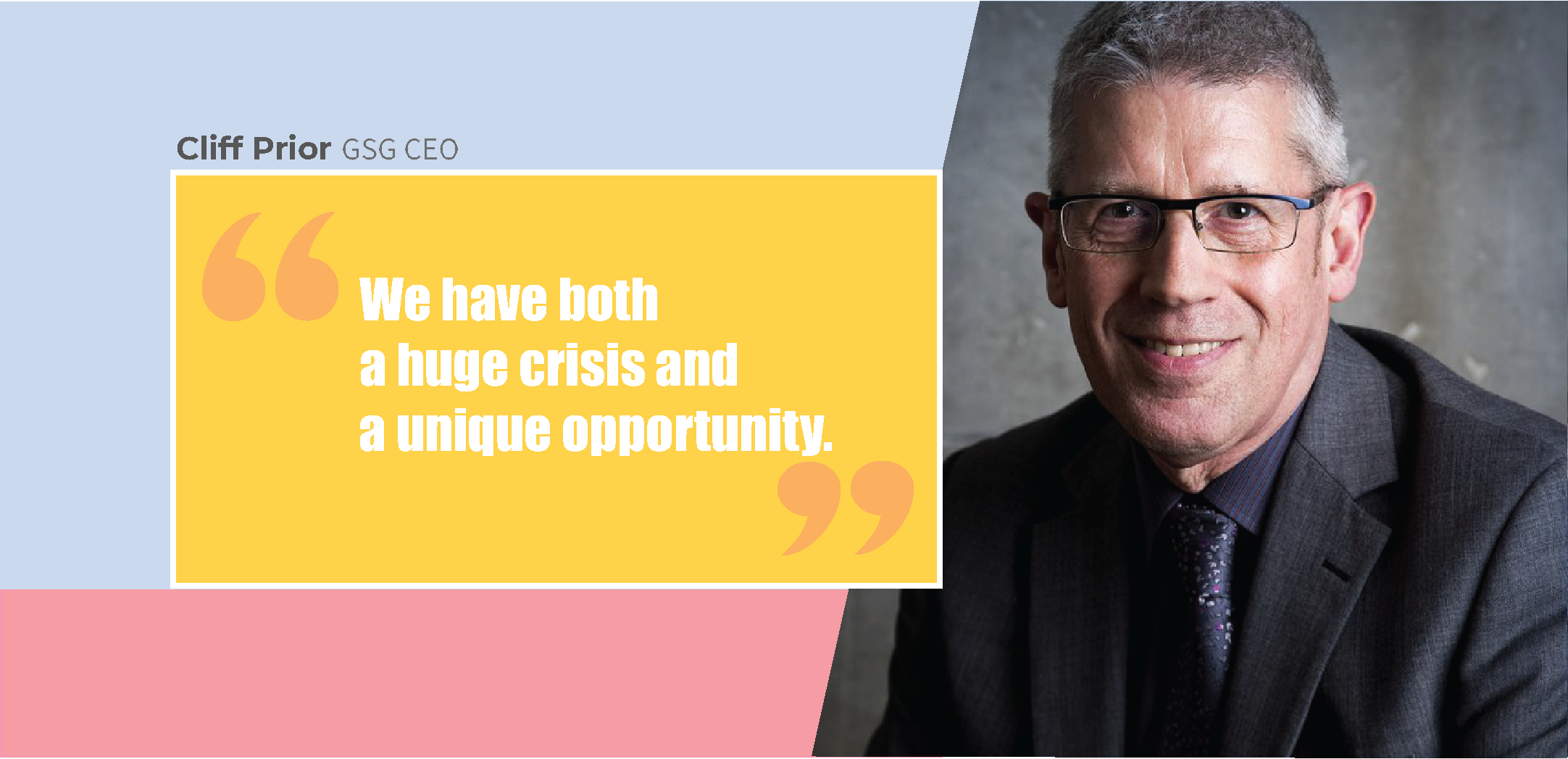- Cliff Prior, the new CEO for the Global Steering Group for Impact Investment, wants to defeat COVID-19 and create a more equitable future global economy.
- Prior aims to make investors more aware of social bonds as a way to tackle matters such as housing, healthcare and education post-pandemic.
- The issuance of green, social and sustainability bonds is forecasted to rise 24% to $400 billion this year, says Moody’s.
Cliff Prior is ready to run.
The new chief executive officer for the Global Steering Group for Impact Investment is metaphorically in a rush, spurred by a recession and the novel coronavirus outbreak that has claimed almost half a million lives around the globe. On this Thursday afternoon in London, three weeks into his new job, Prior is also ready to dash to a meeting of heavyweights from organizations including the United Nations Development Programme, the Organisation for Economic Co-operation and Development, the Aspen Network of Development Entrepreneurs and the World Economic Forum.
“We have both a huge crisis and a unique opportunity,” Prior told Karma. “The big challenge is [people’s] desperation to get any kind of economy versus building the kind of economy that we will want for ourselves as people on the planet for the future.”
Prior, 63, wants to use the policy-making expertise within GSG, a UK-charitable organization aimed at galvanizing investments to address specific social needs, to focus the world’s financial firepower against the pandemic and in support of the creation of a more equitable planet.
A biochemist by training, Prior takes the helm at GSG after spending years promoting social entrepreneurship, most recently as the chief executive officer of Big Society Capital, the UK’s first wholesale social investor. There, he helped deploy over half a billion pounds into different social investment vehicles.
At GSG, created four years ago during the U.K.’s presidency of the precursor to the G20, a policy coordinating group of representatives from 19 governments and the European Union, Prior will preside over its expansion.
GSG has national divisions in over 20 countries and is currently expanding into Kenya and Nigeria. The offices are staffed by nationals from the respective countries who identify priorities and enable the deployment of capital.
Such national advisory boards already exist in South Africa, Zambia and Ghana, one of the only African countries on track to meet the UN’s global development goals. Impact investors plowed $1.69 billion into the country from 2005 to 2015 in sectors such as energy, manufacturing and information and communications technology, according to a GSG report.
Overall, GSG country boards in Africa are focused on delivering microfinancing for medium and small businesses that often struggle to access loans from banks.
“One of the reasons why I love the GSG is that it’s not about some charity registered in England doing good for the world,” he said. “It’s about supporting creative, intelligent, committed people in each of their countries, for them to come up with their own national advisory board and to determine how finance can be used for positive good in their place.”
Prior aims to use his pulpit to popularize social bonds, so they become part of the everyday vocabulary for investors like green bonds.
The issuance of green, social and sustainability bonds is projected to rise 24% to $400 billion in 2020, according to Moody’s, with a bulk of the capital and notoriety going to green bonds. Prior wants to unleash the power of the market through social bonds aimed at tackling issues such as eradicating slums.
“I don’t think the mainstream market is aware of social bonds as they have previously been labeled with their themes like social housing,“ Prior said. “Getting that label over the top will help develop the market and provide the kind of finance that is going to be needed, particularly in health, education and reskilling post COVID-19.”
Social bonds have struggled to gain traction with investors due to a lack of standards around what qualifies as a social financial instrument, say experts. The International Capital Markets Association has published a social bond guide to fill the information gap in the market.
The pandemic represents a chance to reset the world economy and accelerate the trend in mainstream finance from “don’t care investments to ESG and impact allocations,” says Prior.
Back at his London meeting with global influencers, Prior is set to push for incorporating impact criteria in government bailouts and recovery funds, removing barriers for pension funds from investing in social matters and creating an accounting standard for companies to report on their impact portfolio.
The outbreak has uncovered inequities that fall along ethnic lines in major economies. In the U.K. as many as 94% of doctors who died from COVID-19 are of black, Asian or Middle Eastern descent, according to the healthcare publication HSJ.
Moreover, the world is reeling from the death of George Floyd, an unarmed black man, while in police custody. The incident, coupled with many others, sent waves of protesters into the streets around the world. Prior says their concerns about discrimination and fairness need to be addressed through policies and financing to enable underrepresented groups to access capital to build companies and communities.
“Across the world, we still have a legacy of treating some people as less than human,” he told Karma. “That has to stop. The investment industry has its part to play.”






















